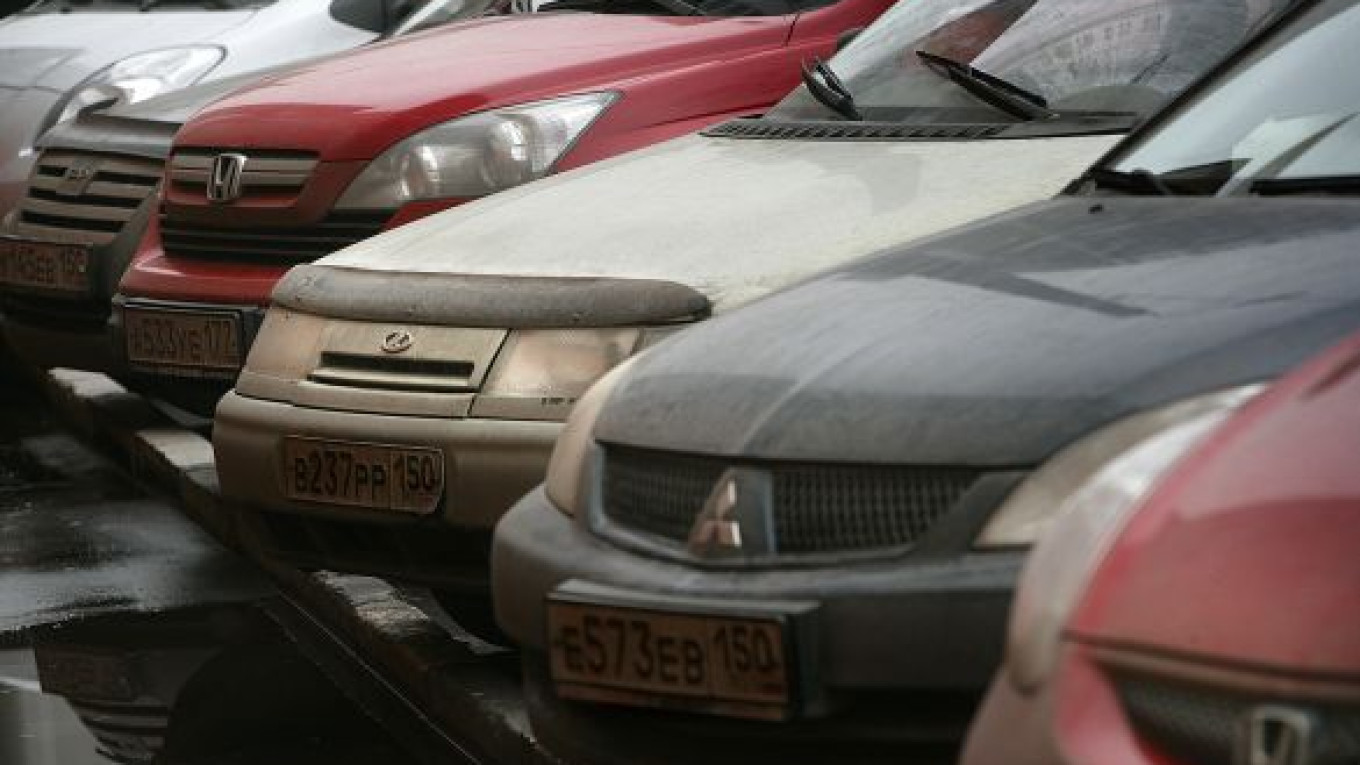The government dismissed a proposal to rescue AvtoVAZ by issuing a new share issue and advised France’s Renault to consider enlarging its blocking stake Tuesday, indicating that the government had been unable to reach a decision on the debt-stricken car giant.
“If there are propositions from Renault, we are ready to consider them,” First Deputy Prime Minister Igor Shuvalov told reporters after a meeting called to unveil the much-anticipated government plans for AvtoVAZ.
Shuvalov said the government, which owns a 25 percent plus one share stake through Russian Technologies, was ready to consider giving more shares to Renault, which has a stake of 25 percent plus one share that it bought for $1 billion in 2008. But Renault, he said, has not shown any interest.
Prime Minister Vladimir Putin threatened last month to dilute Renault’s stake if it did not invest in AvtoVAZ, but the French carmaker has repeatedly said it was not in a position to bail out AvtoVAZ. The possibility of Renault being allowed to increase its stake introduces a new twist to the AvtoVAZ saga.
Renault was tight-lipped about Shuvalov’s offer Tuesday.
“We understand the proposition of the Russian government,” Christian Esteve, head of Renault Russia, said in a statement released by the company’s press office.
Renault is already working closely with AvtoVAZ on debt restructuring and is ready to contribute know-how and technology to develop its Tolyatti-based plant and the Lada brand, said Renault spokeswoman Olga Sergeyeva.
The government’s readiness to discuss a stake increase with Renault indicates that it is trying to resolve its dilemma over what to do with AvtoVAZ by changing its inefficient ownership structure, said Sergei Tselikov, an industry expert at Avtostat in Tolyatti.
“The stakeholders cannot form a common policy and pursue one direction,” he said by telephone.
While the government is deeply involved in AvtoVAZ, Russian legislation forces all major stakeholders to agree on strategic decisions, he said. “The current structure is not effective, and AvtoVAZ will be in agony until an effective owner appears at the plant with a controlling stake,” he said.
Troika Dialog also holds a stake of 25 percent plus one share, while the rest of the shares are held by many minority shareholders.
The structure of the three blocking stakeholders was meant to be a temporary solution before the crisis hit last year, said VTB Capital analyst Vladimir Bespalov. “Troika Dialog never had the intention to develop the company and planned to pull out after forming the ownership structure,” Bespalov said.
Troika Dialog, which helped with the stake sale to Renault in 2008, is now stuck with its stake and is unlikely to sell it during the crisis, he added.
At Tuesday’s meeting, Shuvalov offered few new ideas for AvtoVAZ, which employs more than 90,000 people. He said Monday that none of the thousands of workers who are expected to become redundant in the coming months would be left unemployed and would be hired by two new AvtoVAZ subsidiaries.
Putin said earlier this month that the government would allocate an additional 54.8 billion rubles to pay off AvtoVAZ debts, develop new models, and create new jobs in the region for excess capacity of the company’s labor force.
“The job of clearing AvtoVAZ debt and supporting its personnel has to be tied together with the potential abilities of Renault-Nissan as an investor. … One without the other makes no sense,” Shuvalov said Tuesday.
“We’ll make a final decision on what to do after we understand what the other investors can give the company,” he said.
At least one proposed rescue plan has been ruled out, with Shuvalov dismissing the option of a new share issue as a solution to AvtoVAZ’s mounting debts. “We think this is a bad idea because banks, with such a stake, will not be able to offer much help,” Shuvalov said.
The government has also considered exchanging the plant’s debt to banks for sovereign bonds.
Troika Dialog did not respond to a written request for comment Tuesday.
Shuvalov said a task force led by him would review AvtoVAZ’s investment program and discuss strategies for further development of the auto industry Nov. 20.
Putin, meanwhile, has signed a decree allocating nearly 5 billion rubles out of the 54.8 billion rubles pledged to AvtoVAZ, according to a document published on the government web site Tuesday. The Samara region will receive 712.6 million rubles in 2009 and 4.19 billion rubles next year to provide jobs to 14,651 AvtoVAZ employees and stabilize the local labor market, the document says.
The government has also decided not to introduce new hikes to import tariffs on new cars and parts, Shuvalov said. “Development of the industry in Russia should not limit the rights of consumers,” he said.
A Message from The Moscow Times:
Dear readers,
We are facing unprecedented challenges. Russia's Prosecutor General's Office has designated The Moscow Times as an "undesirable" organization, criminalizing our work and putting our staff at risk of prosecution. This follows our earlier unjust labeling as a "foreign agent."
These actions are direct attempts to silence independent journalism in Russia. The authorities claim our work "discredits the decisions of the Russian leadership." We see things differently: we strive to provide accurate, unbiased reporting on Russia.
We, the journalists of The Moscow Times, refuse to be silenced. But to continue our work, we need your help.
Your support, no matter how small, makes a world of difference. If you can, please support us monthly starting from just $2. It's quick to set up, and every contribution makes a significant impact.
By supporting The Moscow Times, you're defending open, independent journalism in the face of repression. Thank you for standing with us.
Remind me later.


